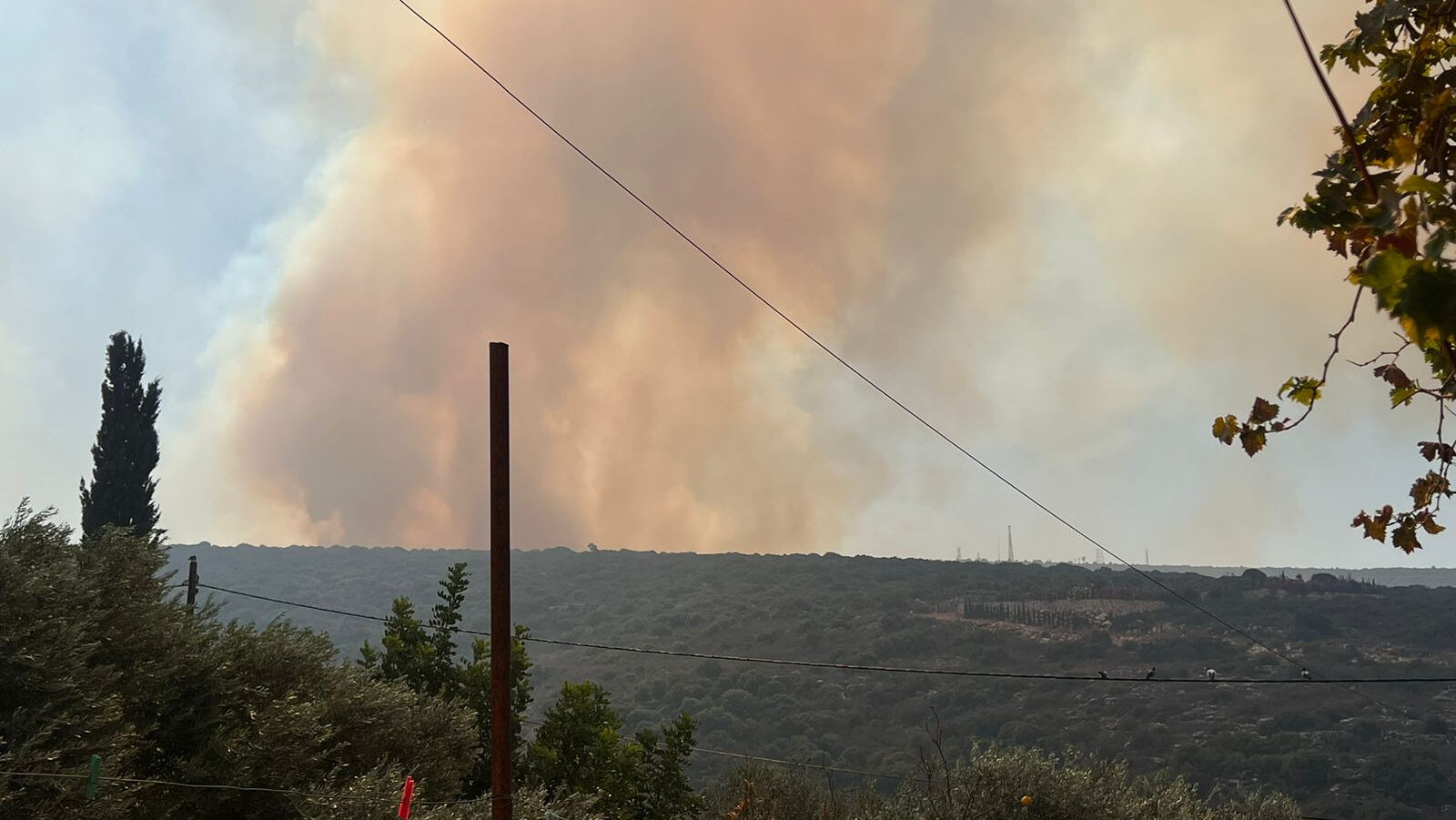On October 26, the Israeli Defense Forces (IDF) intensified artillery strikes on southern Lebanon, causing a series of fires.
According to Lebanese media reports, the strikes targeted several forest areas near the town of Ayta ash Shab, a key stronghold of Hezbollah. Shells containing white phosphorus were allegedly used by the IDF. A Lebanese firefighter was wounded by a landmine while battling the fires that resulted from the shelling.
The IDF also targeted a civilian vehicle transporting workers from a chicken farm close to the town of Aitaroun, another stronghold of Hezbollah. The workers were trapped under Israeli fire for hours before being evacuated by the Lebanese civil defense. No injuries were reported.
Later, an Israeli strike hit a watchtower of the Lebanese military in the area of Ras al-Nakura. The strike didn’t result in any casualties.
Hezbollah didn’t launch attacks during the day. However, the group announced that two of its fighters were killed while fulfilling their duty.
Since the October 7 Hamas-led surprise attack from the Gaza Strip, Hezbollah and its allies have had near-daily exchanges of fire with the IDF along the Israeli-Lebanese border.
As of October 26, the clashes on the Lebanon front have claimed the lives of seven Israelis -six soldiers and one civilian- 44 fighters of Hezbollah, two fighters from the Lebanese Resistance Brigades, seven Palestinian fighters -three from the Hamas Movement and four from the Islamic Jihad- and four Lebanese civilians -two elderly men and two journalists-.
While Hezbollah decreased its attacks in recent days, clashes on the Lebanon front will not likely end as long as the war in Gaza is ongoing.
In a handwritten letter to the Lebanese media on October 25, Hezbollah Secretary General Hasan Nasrallah ordered to call fallen fighters on the front as “Martyrs All the Way to Al-Quds.” The order was seen by many Arab and Israeli observers as a sign of Hezbollah’s commitment to the ongoing war.
The group may have halted attacks to change its tactics, or even to prepare for larger operations once Israel launched its invasion into Gaza.
MORE ON THIS TOPIC:







a scorched earth policy -which simply means kill everyone and everything
17 soldados israelenses mortos pelo hezbollah desde o dia 07 de outubro de 2023.
hezbollah cannot be stopped in its defense of palestine by the debauched khazar thugs in occupied palestine. the ussan rust tubs are begging to be burned. how many pentacon mutts from ussa are willing to die for the chosenite demons that have their country by the throat? ussa is flailing as its natostan rump ukraine fascist project goes belly up. it’s all over for the most evil collection of thugs on the planet bar the funeral.
shiites are historically cowards. i don’t expect any action from hezbollah’s side. i wish it were the taliban in lebanon with all those missiles and rockets.